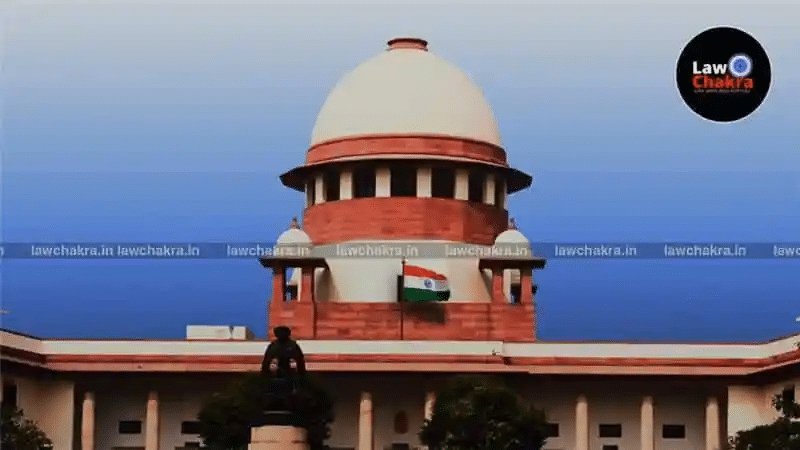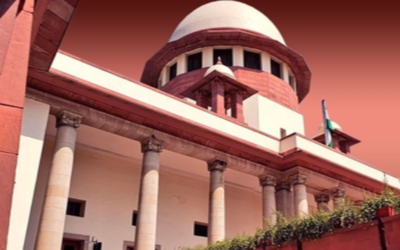Supreme Court Overturns Juvenile Status In Murder Case, Orders Adult Trial

Thank you for reading this post, don’t forget to subscribe!
Supreme Court sets aside Allahabad High Court and trial court orders declaring accused a juvenile; directs him to face murder trial as an adult based on medical and documentary evidence.
New Delhi: On August 1, the Supreme Court of India set aside the decisions of both the Allahabad High Court and the trial court that had declared a murder accused as a juvenile. The apex court held that the accused was not a minor but a major at the time of the alleged murder in 2011.
A division bench of Justices Pankaj Mithal and Ahsanuddin Amanullah passed the verdict while hearing an appeal filed by the complainant in the murder case.
ALSO READ: [Pune Porsche Crash] Police Arrested Teen’s Mother Over “Tempering with Evidence”
The FIR had been registered based on this complainant’s allegations. The appeal challenged the Allahabad High Court’s March 2016 judgment, which had upheld a 2015 trial court order declaring the accused to be a juvenile under the Juvenile Justice (Care and Protection of Children) Act, 2000.
The top court found that the decisions of the lower courts were flawed and not based on proper evaluation of the evidence available.
It observed,
“Having bestowed anxious thoughts to the issue, we find that the approach adopted by the trial court as well as the high court was not proper.”
The key question before the court was whether the accused was below 18 years of age at the time of the incident. To decide this, the court looked at multiple documents and pieces of evidence.
The first school attended by the accused had issued a certificate showing his date of birth as April 18, 1995. However, the court noted that the school headmaster had given a statement that the date of birth entry in the school records was made based only on the oral claim of the accused’s father.
ALSO READ: [Pune Porsche Crash Case] Accused Minor’s Father Granted Bail
The judgment noted,
“It said the first school certificate, where the accused was admitted, recorded his date of birth as April 18, 1995.” The court also emphasized, “It was also relevant to indicate that the school’s headmaster had deposed that birth date entry was made only on an oral representation by the father of the accused.”
On the other hand, the complainant had provided the court with a copy of the family register maintained under the Uttar Pradesh Panchayat Raj Act, 1947.
This document recorded the year of birth of the accused as 1991. The bench said,
“On the other side, the appellant produced the relevant page from a family register maintained under the UP Panchayat Raj Act, 1947, which records the year of birth of the respondent no. 2 (accused) as 1991.”
Further strengthening the argument that the accused was not a minor, the court noted the entry in the voters’ list from 2012, which recorded his age as 22 years as of January 1, 2012.
In addition, a medical board was constituted to assess the age of the accused after he claimed to be a juvenile during the trial.
This board estimated his age to be around 22 years. The court said,
“The bench said the medical board had said that he was aged about 22 years, which would make him between 20-21 years of age as on the date of the incident.”
Based on this cumulative evidence, the Supreme Court held that the finding of juvenility was incorrect. It ruled,
“Accordingly, for the reasons aforesaid, the declaration of respondent no. 2 as a ‘juvenile’ being plainly improper, the impugned order as well as the order dated May 19, 2015 of the trial court holding the respondent no. 2 to be a ‘juvenile’ are hereby set aside.”
The accused had already been released after serving three years under the Juvenile Justice Board’s custody.
The court has now directed him to appear before the trial court within three weeks. He will face a full-fledged trial as an adult. The bench stated that he is free to apply for bail as per law.
The court concluded by saying the trial should proceed without unnecessary delay and said,
“It directed the trial court to conclude the trial on a priority basis, the latest by the end of July 2026.”
The incident pertains to a case registered at the Kairana police station in Uttar Pradesh, where the accused was alleged to have shot the victim, resulting in his death.
Click Here to Read More Reports On Juvenile

